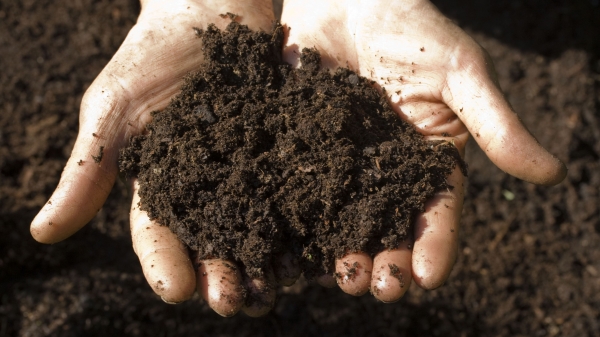Becoming Good Soil

Sermon for July 12, 2020
The Rev. Andria Skornik
A few months ago, early on in the pandemic, Saturday Night Live did a great parody of a church service that was taking place on Zoom. This was back when most people were still new to the technology and figuring it out. In the skit, there’s a Southern Baptist preacher who begins sharing his message for the day, but very soon realizes that of the one hundred plus people on the chat, no one is on mute. So every time anyone in the congregation chimes in with an “amen,” which happens a lot, the screen and mic switches over to them, so much that the pastor struggles to get a word in.
So then he says, “I just want to give a friendly reminder to mute yourself. Because the way this zoom machine works is every mic is as loud as mine. So when you all respond, I can’t hear myself preach. Amen?” Of course everyone then responds back with a loud, “Amen. Praise the Lord,” echoing over and over again as each person says it. To which pastor says, “I can hear you all agreeing, which means you’re not taking the note.”
I can’t tell you how many times that line has gone through my head since I saw the skit. Because it’s such a common human behavior. We see it when people get excited about the latest health trend, but then it comes and goes and nothing has changed. We see it as more people get concerned about the environment, but neglect the day to day actions that make a difference. This kind of thing was also a big discussion point this last weekend as we were celebrating the Fourth of July and people were asking why some of our founding documents made these big claims about universal freedom and equality only to be followed up by years of slavery and segregation.
Of course, we see it in the church, too. When we get excited about the powerful ideas in scripture: like that we don’t have to worry or live in fear; that we’re made for Communion with all people and that God doesn’t acknowledge the boundaries we put up between us; that there are enough resources on the planet meet every person’s need; or that we can live lives of abundance. To all these things, we say “Amen!” But then we might wonder why there are still parts of our lives or our church community that look otherwise.
It’s not that we’re trying to be hypocritical. Much of the stuff we say “amen” to is part of our deepest desires. We care about it. We’d probably even be willing to do the work, if we knew what it was or had a free moment to give it our attention. And what I’m talking about isn’t an across the board thing. There are a lot of good things in our lives and in our church where we’ve been saying “amen,” which means “so be it,” and it does happen. But in those places where there’s a disconnect, where we’re saying, “Amen! Yes, I want that for my life,” but it goes no further than that, what’s going on?
On our reading from Matthew this morning, Jesus gives us some insight on this through a parable. In it, he talks about how the kingdom of God is like seeds. Some get scattered on a path and the birds come and eat them. Others are put on rocky ground, but the roots get blocked from going deep, so they spring up quickly but then wither. But then there are those seeds that fall on the rich, healthy soil. They produce fruit. Sometimes a hundred times what was initially planted.
Just like with the type of ground the seeds land on, whether or not the kingdom can gain traction in our lives is about having the right conditions. It’s not enough to hear the good stuff in scripture and agree. We have to live in such a way that these ideas can actually go somewhere; and become something.
So then the question is, what makes our life good soil? And how do we cultivate the right conditions for the kingdom of God or a world of love, peace and justice so that those things can grow and produce more of the same in us?
Following the planting analogy, sometimes the problem is that we have too much of the wrong stuff in our lives. It’s like when you’re landscaping or gardening you know that if you have too much dust or clay you might have to dig some of it up and haul it off. In fact, that’s what we had to do for the Pocket Park this last week, because the ground wasn’t conducive to the native plants we wanted to bring in.
Similarly, in our own lives we might find that there’s too much of the wrong stuff. It could be that our lives are crammed so full there’s no space or energy for the new things God’s wanting to introduce. Or even that the things we’re pursuing or giving our attention to are at odds with God’s kingdom.
Fr. Richard Rohr talked about this in a recent meditation. About how we’re entrenched in a worldview where the goal is accumulation and consumption. It ends up defining how we understand success and self worth, which then gets wrapped up in what we have or produce.
Rohr says, “The course we are on assures us of a predictable future of strained individualism, environmental destruction, severe competition as resources dwindle for a growing population, and perpetual war.”
As he says, those ideas are embedded in our culture, and they affect us whether we want them to or not and whether we realize it or not. And yet, how different are they from God’s kingdom that says your worth comes from God and God alone. That it’s a given: you are worthy, beautiful, and good just as you are right now! And that true success comes from really knowing that about yourself and everyone else. Where so many messages we get in life impress upon us that we need to keep striving to be enough, the kingdom is saying get comfortable with how enough you already are.
So if we think about all of this — and this is just one example of which there are many — it makes sense why it would be hard for the seeds of the kingdom to take root. Especially when our lives are entangled in a system that undermines so much of what the kingdom of God is about. And that is the dirt that needs to be taken away, because it’s not conducive to the seeds of the kingdom of God.
But again, like in planting, it’s not enough to simply take the nutrient poor dirt away or remove the conditions that work against the kingdom. We’ve also got to introduce new soil and compost and things that will replenish the ground and nourish the seeds as they grow. For us this could be the positive things we make a part of our lives: Time we spend in meditation, silence, or on walks. Things we read or watch or listen to that increase our love for the things God loves and challenge us to live in ways that are more loving. Or quality time we spend with other people, which is harder to find with the way life is right now, but also one of the things that helps connect us back to ourselves and take care of ourselves and each other in the midst of all that’s going on. Replenishing the soil is about whatever we do to promote communion with God and each other. When we can live from our own center of connection and communion, that’s good soil.
What needs to go? What needs to be added in so that our lives can be fertile ground? These are good questions to give some time and thought to. Jesus is throwing out seeds of the kingdom with so much possibility and promise. What can we do to give these seeds a chance?
Influential Sources
https://cac.org/radical-simplicity-2020-06-29/
https://cac.org/embracing-enoughness-2020-06-30/
Tags: Sermons
